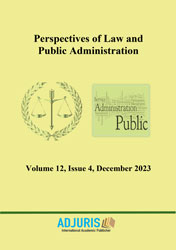A Legal Analysis of the Regulation of Information and Communications Technologies to Promote Digital Inclusion for the Poor and Low-Income Earners in South Africa
A Legal Analysis of the Regulation of Information and Communications Technologies to Promote Digital Inclusion for the Poor and Low-Income Earners in South Africa
Author(s): Howard Chitimira, Keamogetse Motlogeloa, Phemelo MagauSubject(s): Health and medicine and law, ICT Information and Communications Technologies, Socio-Economic Research, Sociology of Law, Administrative Law
Published by: Societatea de Stiinte Juridice si Administrative
Keywords: digital inclusion; digital divide; technology; low-income earners; Covid-19;
Summary/Abstract: Digital inclusion involves the provision of equitable access to Information and Communications Technologies (ICT) to all persons for them to participate in socio-economic activities such as accessing financial services and products, education and employment. This article provides an overview of the regulation of digital inclusion in the South African ICT sector by examining the Electronic Communications Act 36 of 2005, the Independent Communication Authority of South Africa Act 13 of 2000 and the Competition Act 89 of 1998. The article also investigates the legal and related challenges that affect the promotion of digital inclusion for the poor and low-income earners in South Africa. Challenges affecting the promotion of digital inclusion in South Africa such as racial segregation, digital illiteracy, language barriers, disability, geographical limitation, poverty, low-income and affordability are discussed. This is done to recommend possible measures that could be adopted by policymakers and the relevant regulatory bodies to enhance the promotion of digital inclusion for the poor and low-income earners in South Africa.
Journal: Perspectives of Law and Public Administration
- Issue Year: 12/2023
- Issue No: 4
- Page Range: 563-574
- Page Count: 12
- Language: English

